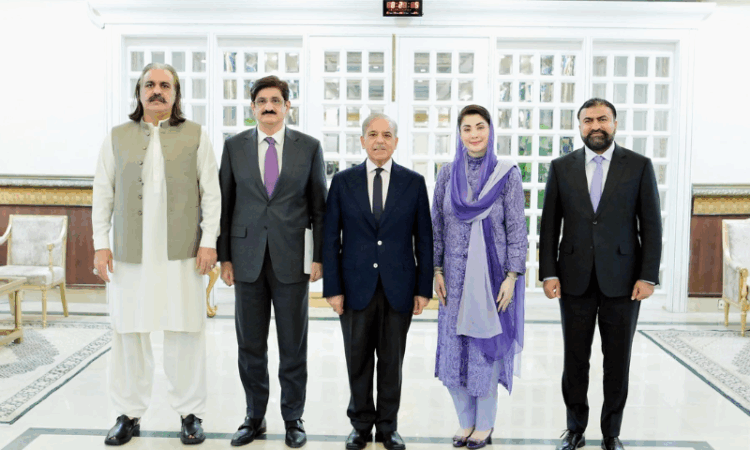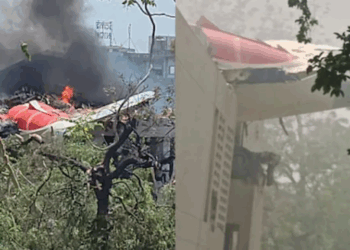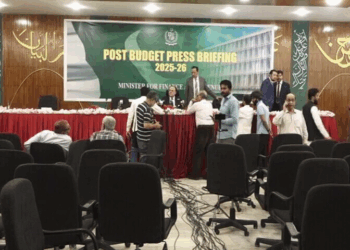Islamabad, April 28, 2025: The Council of Common Interests (CCI) on Monday decisively rejected the federal government’s proposal to construct new canals on the Indus River, reversing an earlier approval granted by the Executive Committee of the National Economic Council (ECNEC) on February 7.
In a statement issued by the Prime Minister’s Office after the crucial meeting, it was declared:
“No new canals will be constructed without mutual consent among all provinces. The Centre will not proceed with any such project until full consensus is achieved.”
The meeting, chaired by Prime Minister Shehbaz Sharif, was convened ahead of its originally scheduled date of May 2 at the Sindh government’s request, amid growing protests across the province.
The CCI, comprising the chief ministers of all four provinces, Deputy Prime Minister Ishaq Dar, Defence Minister Khawaja Asif, and Federal Minister Ameer Muqam, reviewed a six-point agenda with 25 officials participating by special invitation.
The Council particularly focused on Sindh’s concerns over the proposed canal projects, which had sparked widespread demonstrations.
According to the official statement, the federal government is engaging all provinces to forge a long-term consensus on agricultural policies and water management infrastructure.
“Water rights of all provinces are protected under the Water Apportionment Accord of 1991 and the National Water Policy of 2018, both of which reflect full stakeholder consensus,” the statement reaffirmed.
To address provincial concerns and secure Pakistan’s agricultural and environmental future, the CCI decided to establish a federal-provincial committee. This body will propose solutions aligned with the 1991 Accord and 2018 Policy, ensuring that all decisions uphold inter-provincial equity and national interests.
The CCI also formally annulled the provisional ECNEC approval of February 7 and instructed the Planning Division and the Indus River System Authority (IRSA) to hold further consultations with all stakeholders before revisiting the proposal.
Speaking to the media after the session, Khyber Pakhtunkhwa Chief Minister Ali Amin Gandapur emphasized the reaffirmation of equal water rights for every province.
“The decision to build new canals from the Indus River has been withdrawn. Future decisions will be based on mutual understanding,” he said.
Gandapur also announced that three of KP’s demands were approved for inclusion in the next CCI meeting, including a review of the National Finance Commission (NFC) Award and the formal recognition of tobacco as an agricultural crop. He hailed these inclusions as a major victory for the people of Khyber Pakhtunkhwa.
The controversial plan to construct six canals — including the Cholistan Canal Project aimed at irrigating parts of the desert region — had become a flashpoint between the PPP-led Sindh government and the federal coalition.
The proposed project, with an estimated cost of Rs211.4 billion, aimed to bring around 400,000 acres of barren land under cultivation. However, critics, particularly from Sindh, warned that such developments would compromise their water share and devastate the province’s agriculture and ecology.
Widespread opposition erupted across Sindh, with political parties, nationalist groups, civil society organizations, and lawyers staging protests and sit-ins. Demonstrations in Khairpur Babarlo and near Daharki have now entered their 11th and 9th consecutive days, respectively, crippling the movement of essential goods between Sindh and Punjab.
The resulting blockade has left hundreds of trucks stranded, leading to shortages of petrol, food items, and daily supplies. Drivers have reported damage to their vehicles due to prolonged standstills.
Last week, in an effort to defuse tensions, PM Shehbaz Sharif met with PPP Chairman Bilawal Bhutto-Zardari and assured that no construction would proceed without consensus. However, protests continued amid public skepticism until Monday’s CCI decision finally provided formal reassurance.








